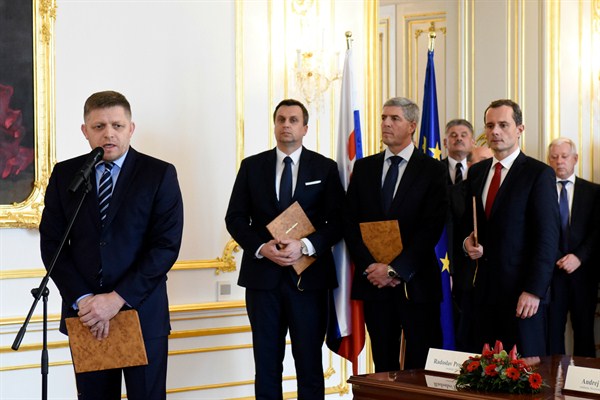Slovakia’s coalition government, made up of Prime Minister Robert Fico’s center-left Smer-Social Democracy party, the nationalist Slovak National Party and two other parties, was sworn in late last month following parliamentary elections that left Fico without an outright majority. In an email interview, Sean Hanley, senior lecturer in comparative Central and East European politics at the University College London’s School of Slavonic and East European Studies, discusses Slovakia’s elections and prospects for the coalition government.
WPR: What explains the electoral shifts in the latest election, including declining support for Prime Minister Robert Fico’s center-left Smer-Social Democracy Party and increased support for the nationalist Slovak National Party?
Sean Hanley: Smer’s election campaign, which promised to “protect Slovakia” against the threat of mass immigration, badly misfired. Although Slovak public opinion is fearful of the prospect, albeit unlikely, of large numbers of migrants settling in Slovakia, key voter groups were far more concerned with socio-economic issues and corruption.

